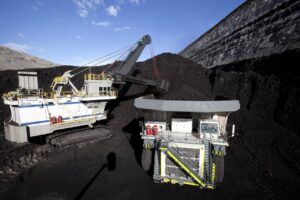Oil major BP has delivered its annual energy market outlook, where it seeks to convince policy makers and investors world-wide of the impregnability of its fossil fuel business model. As usual, it makes heroic assumptions about the future of energy demand, fossil fuel use, and allowed carbon emissions.
Typically of the fossil fuel majors, BP can’t see the renewable energy revolution appearing before its eyes. This graph below highlights its myopia, it’s best guess of solar and renewable costs now and in 20 years time.
“Solar PV is also likely to become competitive across an increasing number of market niches,” it writes in the report. “But even by 2035, grid-scale PV still requires a material carbon price to compete with efficient gas combined cycle generation.”
What a load of rubbish. Even leading oil industry consultant Wood McKenzie earlier this month pointed out that solar was about to effect an energy revolution even more dramatic than the fleeting one caused by shale oil and gas. It noted that in some states, solar PV was already cheaper than combined cycle natural gas plants, let alone in 20 years time.
Investment bank Lazard made the same point in this story and graph last year. Citigroup said last year “solar will become increasingly competitive with natural gas peaking plants and CCGTs as LCOE trends downward over the long-term and regulators and policy encourages fuel diversity.” And Minnesota proved that was already happening when it held a capacity auction last year, expecting it to be seized by gas plants, but solar came in with a lower offer.
The absurdity of BP’s outlook is further highlighted by Apple’s recent commitment to a major solar farm in California. Had gas been a cheaper option, you would be sure that Apple’s board and executives would have exercised their fiduciary duty to shareholders and signed up for gas instead of solar.
But they didn’t. And that’s because solar is cheaper than gas now and does not have fuel price volatility. In the US, contracts are being written for 6c/kWh, which still translates around 8c/kWh after tax credits. In the Middle east, a recent contract was signed for 5.84c/kWh for a 20 year contract, with no subsidies. Even gas fired generation in what is the world’s biggest exporter of natural gas is 50 per cent more expensive.
Which underlines points made by the likes of Carbon Tracker and Kepler Chevreux’s Mark Lewis in recent months. Big oil just doesn’t get it. Hopefully, the world’s biggest investors do.









